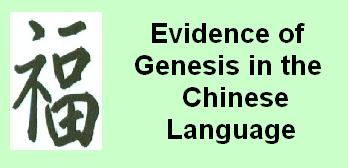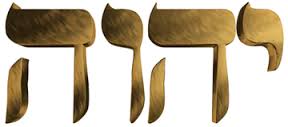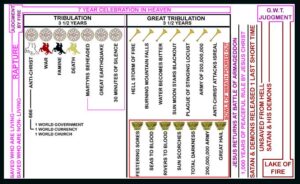Around 1976, Aramaic was scarcely known in America. Today many notable scholars and Bible students are turning to Aramaic for a better understanding of the Scriptures. Most of these prominent scholars who maintained, some years ago, that certain portions of the 4 gospels were written first in Aramaic, now say that the whole of the NT originally was written in Aramaic. It was the day-to-day language of Israel in the Second Temple period (539 BC – 70 CE) Greek Christians themselves have taken for granted that the scriptures were written in Aramaic. Greece being close to Syria, the Greek people were the first Europeans to embrace Christianity. The Assyrians were ruled by the Turks for almost 600 years. They spoke, wrote and prayed in Aramaic of their forefathers. The contention of some scholars that the NT was written in Greek is the main reason that for centuries the scriptures have been subject to unsuccessful revisions.
If you were to ask Christians in bible lands in what language the NT was originally written, the immediate reply would be Aramaic, the language that Jesus and His followers spoke and wrote. This was the language spoken by Assyrians, Jews, and Syrians which is spoken today and read in ancient churches in the near East. The Apostles heard their Lord speaking and preaching in Aramaic and they themselves naturally used the same tongue in their daily conversation and teaching and writing to their own people. Aramaic was also the ecclesiastical language of Greek converts to Christianity, similar to Arabic being a sacred language to the religion of Islam and the Hebrew language to the Jewish religion.
The translators of the new testament into Greek must have had manuscripts in Aramaic for translation into the Greek tongue. Eventually, these manuscripts were discarded or lost like many other literary or philosophical documents. An example of this are some works from Plato are lost, but have been carried on by other historians such as Alexander Hislop. Many were burned from Nero to Constantine under roman religious persecution.
There were Aramaic originals lost in Greece and Italy, but manuscripts copied from the first originals have survived in Iraq, Iran and Turkey where Aramaic is still spoken and is the literary
tongue of around 400,000 Assyrians and Chaldeans in 2012. These manuscripts are found in churches and the possession of bishops and priests, free from religious persecution, or European influence from popes or otherwise at the time. There is no mention of losing Aramaic scriptures in the church of the east, nor any translation being made from the Greek to Aramaic.
When the NT was translated into European languages, Aramaic texts were unknown in Europe. Greek was the first language of Western Christianity. Prior to the translation of the Vulgate by Jerome in the 4th century, all of the sacred literature in Greece and Rome was written in Greek. The rest of Europe had not been converted yet, so Christian scriptures were not translated into the other Western tongues.
The Galileans were descendants of the people from the eastern side of the river Euphrates. They had been forced by the Assyrian kings to migrate to Galilee in northern Palestine. The Galileans, Jews and Syrians were the first people to accept the teachings of Jesus. The Apostles started their teaching in synagogues and their converts were initially from their own countrymen and from the Syrians, in particular some who were intermarried with Jews, like Timothy and Titus (Acts 16:1 Gal 2:3).
It is easy for westerners to forget that the King James Version was made only 400 years ago. This was 1700 years after the England’s and other European people got theirs. This was without the knowledge of Aramaic scriptures. Until about the 16th century, Christians were burned alive or given a death sentence for possession of sacred literature. Even Leonardo Da Vinci who most likely had little or no knowledge of Eastern customs, made paintings of Jesus, Mary and the fisherman apostles with costly robes instead of simple peasant garments. The famous “Last Supper” painting had the disciples sitting at the table when it was custom for then to lay down on one’s side to eat.
The teachings of Jesus were first recorded in the Galilean dialect, Northern Aramaic, and not the Jewish or Southern dialect of Chaldean Aramaic. It was natural for the Apostles to write in their own vernacular speech. This is seen clearly from the idioms, metaphors and composition. The manner of speech, the phraseology, and the orientation in the NT are clearly and vividly Northern Aramaic. If the NT had been written in Greek it would not have escaped Greek idioms, grammatical construction and manners of speech. Not a single idiom, metaphor, or parable in the NT is alien to Semitic thought and to Aramaic speech.The Aramaic spoken in Judea during the time of Jesus had undergone many changes and therefore was different then that spoken in Galilee and from the Aramaic that the Jews spoke after
they returned from Babylon. In the course of time, many Hebrew words and manners of speech were in cooperated into the Chaldean dialect of Aramaic which the Jews had brought from Babylon. This is
because the Jews tried to restore the pure Hebrew language which they had used before their captivity.
When one compares the Aramaic book of Daniel, with the Talmud, one may note the vast linguistic change which took place from 450 B.C. to the time of Jesus. In other words, the Jews in the time of Jesus spoke a mixed language. Jesus and His disciples were Galileans and spoke Galilean Aramaic. A lot of the opposition against Jesus and His teaching was for this very reason. Jews did not believe the Messiah could not come from Galilee. See verses below
and opinions about the true identity of Jesus divided the crowd.
Pilgrims: Just a minute. Aren’t all these people Galileans?
| [Scriptures are from “The Voice” bible] |




















